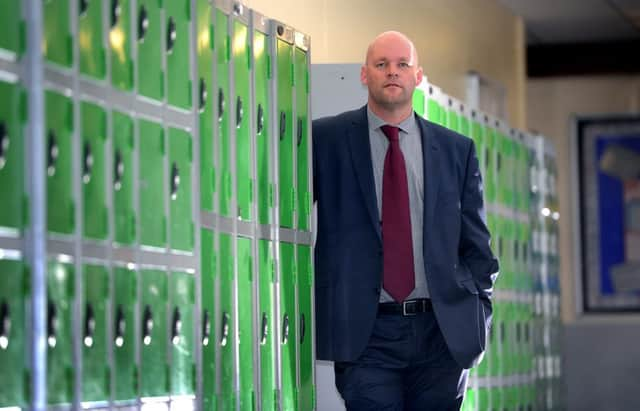School is no place for reality TV says Ofsted head


The programmes do not show the reality of school life, focusing on the “sensational” rather than a balanced picture of state education, according to Sir Michael Wilshaw.
A number of school-based shows and documentaries have been aired on UK TV in recent years, including Channel 4’s Educating Yorkshire, which focused on Thornhill Community Academy in Dewsbury, West Yorkshire; and the BBC’s Tough Young Teachers, which followed a group of newly-qualified teachers. A number of pupils and teachers have become well-known after featuring in these programmes.
Advertisement
Hide AdAdvertisement
Hide AdEducating Yorkshire in 2013 attracted audiences of more than four million people and won a series of television awards.
It also made famous names of staff and pupils including the former head Jonny Mitchell, English teacher Matthew Burton and former pupil Musharaf Asghar who was shown overcoming a stutter in the series’ finale.The school was subsequently found to require improvement by Ofsted.
However the inspection report did praise the work of the school for ensuring the making of a television programme “was well managed and that the interests of students and staff were protected.”
In his speech to the Association of School and College Leaders (ASCL) annual conference in Birmingham, Sir Michael took aim at such reality shows, as he said that recruitment problems in England’s schools are in part fuelled by negative public perceptions of teaching.
Advertisement
Hide AdAdvertisement
Hide Ad“One way you can certainly help is by refusing any request for your school to feature on a ‘fly on the wall’ television show,” he said.
“The problem with these programmes is that they provide great TV but little reality. They inevitably focus on the sensational, at the cost of presenting a balanced picture of what goes on in our schools. The spotlight always falls on the ‘lippy’ kid and the NQT (newly qualified teacher) in trouble and gives a distorted view of our state system. All they do is reinforce the caricatures of comprehensive schools promoted by those who don’t understand them, would like to get rid of them and return to selection.”
A Channel 4 spokeswoman said: “Channel 4 is proud of its much-loved and award-winning Educating ... series which shows a balanced view of contemporary school life across the country.
“The stories we uncover are a mixture of inspirational, humorous and affecting and do much to celebrate the lives of students and give voice to the experiences of teachers at work in the UK.”
Advertisement
Hide AdAdvertisement
Hide AdSir Michael also argued that the growth in international schools is also causing problems with teacher recruitment in state schools.
“The reasons for the teacher shortages are already well documented so I don’t need to dwell on them too much today, other than to say that the exponential growth in international schools abroad, many of which are sponsored by our top public schools, is pouring petrol on to the fire,” he said.
There are now an estimated 8,000 international schools, many of them employing UK teachers, the Ofsted boss said.
He added: “That figure is forecast to nearly double over the next few years. What joy! How wonderful for the independent sector, how miserable for the rest of us.
Advertisement
Hide AdAdvertisement
Hide Ad“I have to confess that as a head, it was always my ambition to make my school so good that parents would rather opt for a free state education than an independent one. Therefore it’s good to see that the Good Schools Guide is recognising that our schools are getting so much better. Our job must be to convince parents, particularly those of more able children, that state secondary schools can deliver the very best education and help youngsters achieve their full potential.”
Sir Michael’s comments come amid continuing concerns from school leaders and education experts about a growing teacher shortage in England’s state schools.